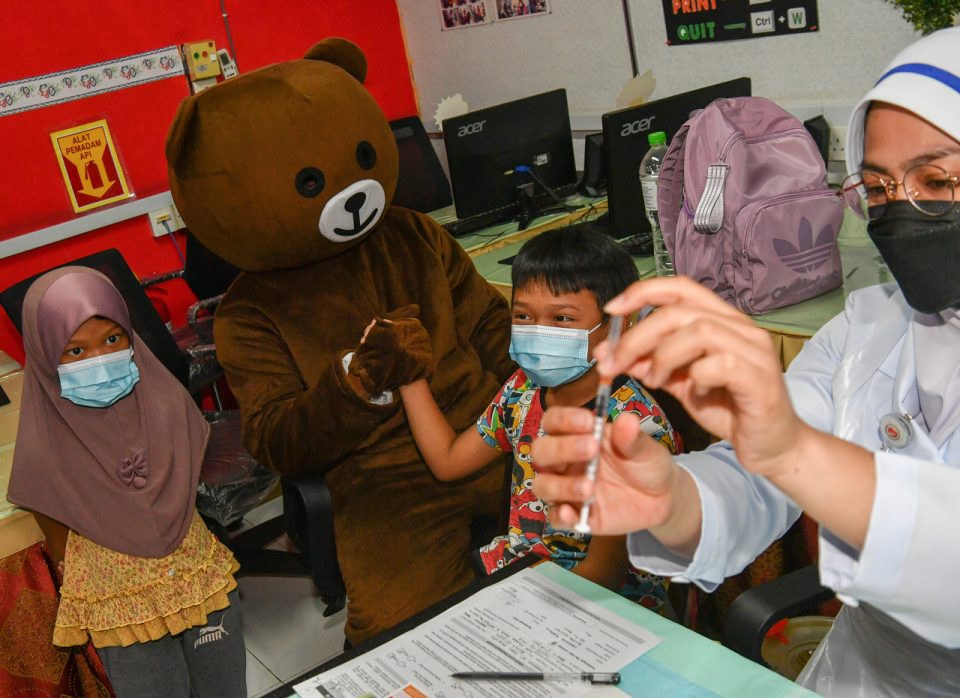KUALA LUMPUR, March 6 — The use of Sinovac’s CoronaVac vaccine is seen to be effective in protecting children from being infected with the Covid-19 virus, thereby reducing their admission into hospitals and intensive care units (ICU), according to Sungai Buloh Hospital consultant paediatrician and neonatologist Dr See Kwee Ching.
He said the effectiveness of the vaccine, which received conditional approval at the 370th Drug Control Authority meeting on March 3, had been proven through a study conducted in Chile.
”A study on this vaccine was conducted in Chile and it involved two million children, aged six to 16. Its effectiveness was about 75 per cent and saw a 90 per cent reduction in hospitalisation and ICU admission rates.
“For children, aged five to 11, the (vaccine’s) effectiveness was the same, around 75 per cent, with 77 per cent reduced admission to hospitals and ICU. This also exceeds the threshold set by the WHO (World Health Organization) which is 50 per cent for infection prevention,” he said when contacted today.
Deputy Health Minister Datuk Dr Noor Azmi Ghazali was reported to have said today that children, aged five to 11, who could not receive the Pfizer-BioNTech’s Comirnaty vaccine for health reasons would be offered the CoronaVac.
Dr Noor Azmi said this vaccine will be offered at selected vaccination centres (PPV), beginning tomorrow, and parents will be given the choice of CoronaVac for their children if they do not want the Comirnaty vaccine.
CoronaVac is the second vaccine to be approved for children aged five to 11.
Dr See, who is also head of paediatrics at the Sungai Buloh Hospital, said the use of the CoronaVac vaccine is not unusual in the country as it had been used in vaccination programmes for adolescents and adults.
“The dosage to be administered is about three microgrammes which is the same amount for adults. In China, studies conducted have shown that a 1.5-micro gramme dosage did not prove effective compared to a dosage of three microgrammes which is sufficient to provide protection.
“So there is no need for the dosage to be lowered. The use of this vaccine will also ‘ramp up’ the vaccination rate for children in the country,” he said.
In the meantime, Dr See said children need to be vaccinated seeing that they need to return to school and could not continue the home-based teaching and learning (PdPR) method because it would affect them.
“Children need social interaction. It is not good if they have less time in school (for social interaction).To allow them to go to school safely, they need to be vaccinated.
“This is also part of the country’s direction to move into the endemic phase as soon as possible as this group of 3.6 million individuals is like a ‘missing piece of the puzzle’ in that direction,” he added.
As of yesterday, a total of 1,003,227 individuals or 28.3 per cent of the population of children aged five to 11 in the country had received the first dose of the Covid-19 vaccine through the National Covid-19 Immunisation Programme for Children (PICKids).
— Bernama





